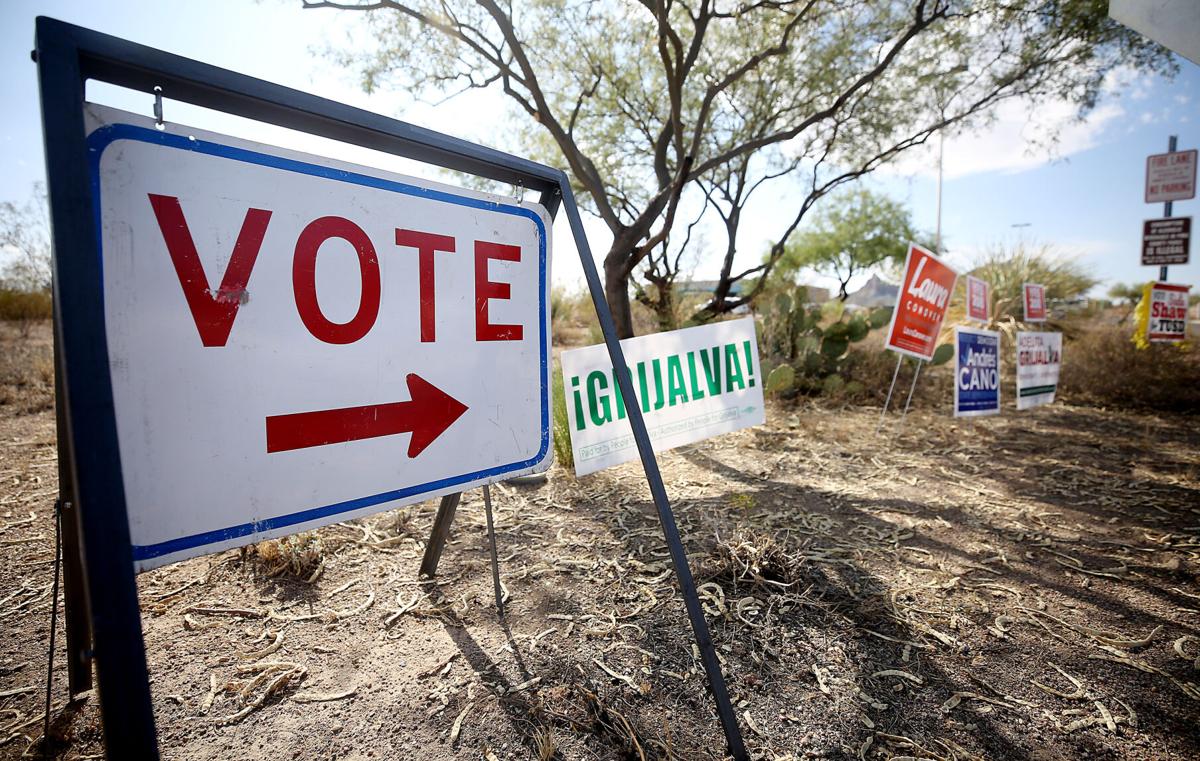PHOENIX — A coalition of groups is challenging two new laws approved earlier this year by the Republican-controlled Legislature they claim will impact the ability of people to vote.
The lawsuit filed Tuesday in federal court seeks to void a statute that says people can be removed from what until now has been a permanent early voting list if they don't use their early ballots for two consecutive election cycles. Challengers say that could disenfranchise some people.
A second challenged law says voters who forget to sign their early ballots have only until 7 p.m. Election Day to "cure'' the problem. By contrast, those whose signatures are found by county officials to not match have five business days after that to get it fixed.
Attorney Rodney Ott, representing the organizations, said there is no evidence that current law has created problems.
But what he does contend is that the two changes, enacted in the wake of the 2020 election and the Joe Biden victory in Arizona, are "designed to make it harder for Arizonans — especially Arizonans of color — to vote.'' So he wants a federal judge to block enforcement of both measures.
Both proposals deal with early voting.
Arizona has some of the simplest laws, with individuals allowed to be placed on a "permanent early voting list'' and be guaranteed to get a ballot in the mail ahead of each election. That ballot can be mailed back or dropped off at a polling site.
Every early ballot is reviewed by county election workers to see if the signature on the outside matches what they have on file.
If there is a discrepancy, a call is made to the voter to determine the ballot's veracity. The law provides five business days after the election.
Earlier this year, however, the Legislature enacted a separate policy for early ballots that are returned without the legally required signature. It says the deadline is 7 p.m. Election Day.
Ott argues that this disproportionately affects people who may not have the ability to easily travel to county election offices by the new deadline. That includes Black and Latino voters.
"People of color are nearly twice as likely to lack access to a car than white Americans,'' he said. And Ott said many minority voters live in neighborhoods with limited access to public transportation and few election officers.
He also claims a racial component behind the other law being challenged, the one on the early voting list.
That law spells out that if someone does not return an early ballot in at least one of four prior elections — meaning a primary and a general election in two successive years — that person is dropped from what would no longer be called the permanent early voting list.
They still could sign up again to get early ballots. And they could still go directly to the polls on Election Day.
"The Voter Purge Law imposes a severe burden on Arizona voters attempting to exercise their right to vote, particularly the elderly, indigent Arizonans, students, and people of color,'' Ott wrote.
What's behind much of that, he said, is a study that shows that Black and Hispanic Americans are more likely to be "intermittent or rare voters compared to white voters.'' Ditto, he said, of people with lower income.
Ott said that is shown by the 2020 election.
He said about 71% of all registered voters are white. But if this law had been in effect, they would have constituted just 54% of those removed from the permanent early voting list.
"By contrast, Latinos are 19% of registered voters, but would be 33% or removals,'' Ott wrote.
"Black Arizonans are 4% of registered voters but would be 5% of removals,'' he said. "And Native Americans are 0.9% of registered voters but would be 1.3% of removals.''
He acknowledged that people about to be removed from the early voting list would get a notice in the mail that they could send back to remain on the list. But Ott said that is insufficient to alert voters that they won't be getting their early ballot.
Ott contends that lawmakers enacted the changes because they were unhappy with the results of the 2020 election.
"Arizonans of color were able to elect candidates of choice for president and vice president,'' he said, with 59% of voters of color voting for Joe Biden and Kamala Harris, including 61% of Latinos. And Ott said 80% of the votes cast in the Arizona portion of the Navajo and Hopi tribes were for the Biden-Harris ticket.
"The historic turnout in 2020 ought to have been cause for celebration,'' he said. "However, some officials in Arizona and around the country chose instead to weaponize these figures, spreading false and discredited theories that the 2020 elections were affected by widespread voter fraud.''
The plaintiffs in the case include Mi Familia Vota, Arizona Coalition for Change, Living United for Change in Arizona, and League of Conservation Voters.
In a prepared statement, a spokeswoman for Attorney General Mark Brnovich said he will do his job of defending election laws passed by the Legislature.





